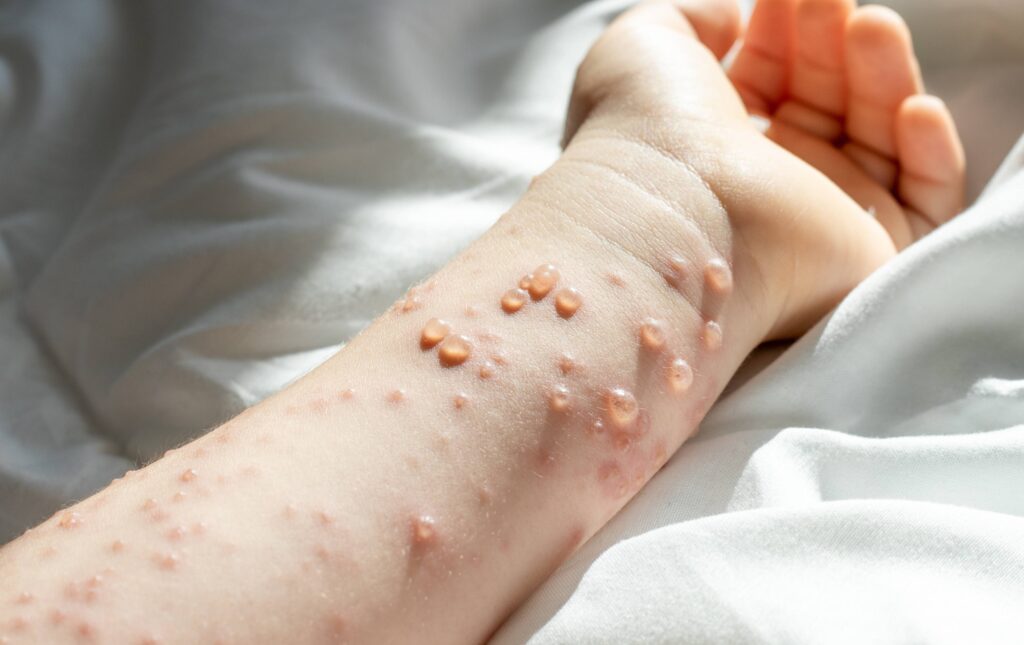
What Is Chickenpox?
Chickenpox, also called varicella, is characterized by itchy red blisters that appear all over the body. A virus causes this condition. It often affects children and was so common it was considered a childhood rite of passage.
It’s very rare to have chickenpox infection more than once. Since the chickenpox vaccine was introduced in the mid-1990s, cases have declined.
Who Is At Risk Of Developing Chicken Pox?
Exposure to the virus through previous active infection or vaccination reduces risk. Immunity from the virus can be passed on from a mother to her newborn. Immunity lasts about three months from birth.
Anyone who has not been exposed may contract the virus. Risk increases under any of these conditions:
- You have had recent contact with an infected person.
- You are under 12 years of age.
- You are an adult living with children.
- You have spent time in a school or childcare facility.
- Your immune system is compromised due to illness or medications.
Signs and Symptoms
An itchy rash is the most common symptom of chickenpox. The infection will have to be in your body for around seven to 21 days before the rash and other symptoms develop. You start to be contagious to those around you up to 48 hours before the skin rash starts to occur.
The non-rash symptoms may last a few days and include:
- fever
- headache
- loss of appetite
One or two days after you experience these symptoms, the classic rash will begin to develop. The rash goes through three phases before you recover. These include:
- You develop red or pink bumps all over your body.
- The bumps become blisters filled with fluid that leaks.
- The bumps become crusty, scab over, and begin to heal.
The bumps on your body will not all be in the same phase at the same time. New bumps will continuously appear throughout your infection. The rash may be very itchy, especially before it scabs over with a crust.
You are still contagious until all the blisters on your body have scabbed over. The crusty scabbed areas eventually fall off. It takes seven to 14 days to disappear completely.
Prevention/Vaccine
The chickenpox vaccine prevents chickenpox in 98 percent of people who receive the two recommended doses. Your child should get the shot when they are between 12 and 15 months of age. Children get a booster between 4 and 6 years of age.
Older children and adults who haven’t been vaccinated or exposed may receive catch-up doses of the vaccine. As chickenpox tends to be more severe in older adults, people who haven’t been vaccinated may opt to get the shots later.

With access to
24 Hour
Emergency
Assistance
A small river named Duden flows by their place and supplies it with the necessary regavelialia. It is a paradise.
Service Recipient Says

Oxmox advised her not to do so, because there were thousands of bad Commas, wild Question Marks and devious.
Kolis Muller NY Citizen
Oxmox advised her not to do so, because there were thousands of bad Commas, wild Question Marks and devious.
Kolis Muller NY Citizen











Oxmox advised her not to do so, because there were thousands of bad Commas, wild Question Marks and devious.
Kolis Muller NY Citizen